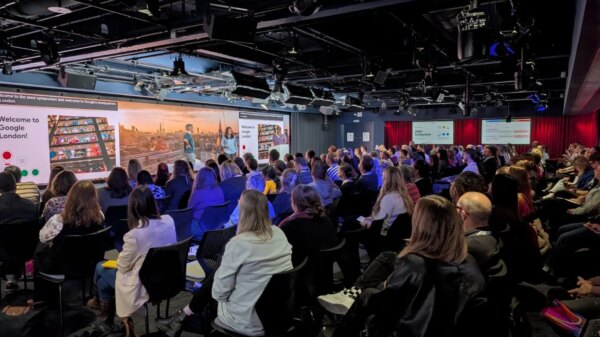This week, the tech industry’s elite converged in Lisbon for the Web Summit, a comprehensive gathering that celebrated innovations from AI advancements to the influencer economy. Within the expansive pavilions—vast spaces filled with stages, booths, and networking opportunities—the term “agentic AI” resonated prominently.
Attendees encountered a variety of AI agents, from wearable technology in the form of necklaces to software designed to integrate AI agents into everyday workflows. Notably, over 20 panel discussions focused on this burgeoning topic.
The concept of agentic AI refers to artificial intelligence systems capable of autonomously executing specific tasks, such as booking flights, ordering rides, or assisting customers. This term has gained traction within the industry and has even been recognized by the Daily Mail as a trending word among Gen Z.

However, the notion of AI agents is not new. Babak Hodjat, now the Chief AI Officer at Cognizant, was instrumental in developing the technology behind one of the most recognized AI agents, Siri, during the 1990s. “Back then, the fact that Siri itself was multi-agentic was a detail that we didn’t even talk about—but it was,” Hodjat explained in an interview from Lisbon.
Historically, discussions around AI agents trace back to the foundational work of Alan Turing, who first articulated concepts akin to autonomous agents. Despite their long-standing presence, agentic AI raises new concerns, particularly around risks associated with their interactions in the real world. AI agents may inadvertently modify data or systems, introducing biases and unforeseen consequences, as highlighted in the IBM Responsible Technology Board’s 2025 report.

The report warns that AI agents could take actions that have irreversible consequences, particularly if biases within their data go undetected. “Agentic AI introduces new risks and challenges,” the report states. The implications extend to the everyday reliance on AI systems, raising the question of trust in their outputs.
In Hodjat’s view, the greater concern lies in how people interact with these AI systems. “People are over-trusting [AI] and taking their responses at face value without digging in and ensuring that it’s not just some hallucination that’s coming up,” he cautioned. This sentiment is especially pertinent in regions like Europe, where regulatory frameworks around AI are becoming increasingly stringent.

Jarek Kutylowski, CEO of the German AI translation company DeepL, expressed concerns about the pace of AI innovation in light of new regulations. “In Europe, we are taking it too far,” he stated, referring to the EU AI Act, which imposes strict guidelines on AI usage. He argues that focusing solely on risks might overshadow the potential benefits of technological advancement.
Kutylowski highlighted the critical balance between innovation and regulation, noting, “I see definitely a much larger risk in Europe being left behind in the AI race.” This sentiment echoes a broader industry anxiety regarding the implications of stringent regulations, which could stifle technological progress and economic growth.
As conversations around agentic AI evolve, the industry must grapple with the duality of embracing innovation while ensuring ethical standards. The dialogue at the Web Summit illustrates a pivotal moment for AI, where the future of agentic capabilities must be aligned with responsible and informed usage.
See also Hugging Face and Google Cloud Enhance AI Model Access with New CDN Gateway and Security Features
Hugging Face and Google Cloud Enhance AI Model Access with New CDN Gateway and Security Features Study Flags ‘Questionable’ Sources in Elon Musk’s Grokipedia, Risking Misinformation
Study Flags ‘Questionable’ Sources in Elon Musk’s Grokipedia, Risking Misinformation Perplexity CEO Aravind Srinivas Addresses AI Job Loss Fears, Emphasizes Human Connection
Perplexity CEO Aravind Srinivas Addresses AI Job Loss Fears, Emphasizes Human Connection OpenAI Reveals Em-Dash Fix in ChatGPT, Enhancing Corporate AI Writing Authenticity
OpenAI Reveals Em-Dash Fix in ChatGPT, Enhancing Corporate AI Writing Authenticity Taiwan NSB Warns of Data Breaches and Bias in Chinese AI Apps Deepseek, Doubao, and More
Taiwan NSB Warns of Data Breaches and Bias in Chinese AI Apps Deepseek, Doubao, and More






































































